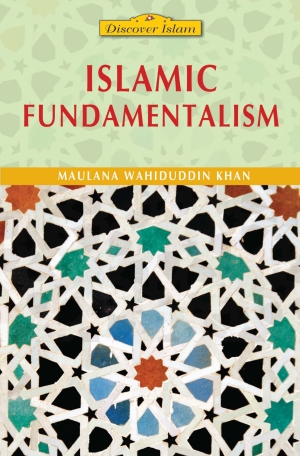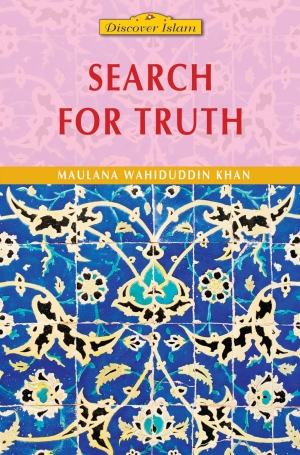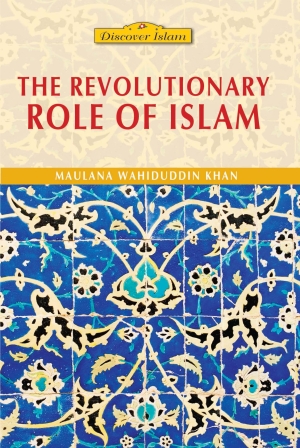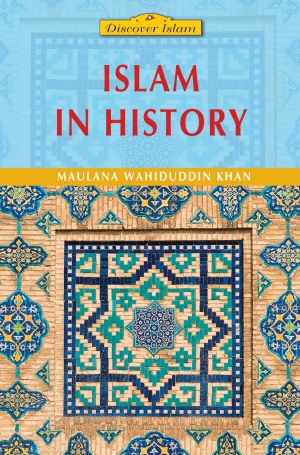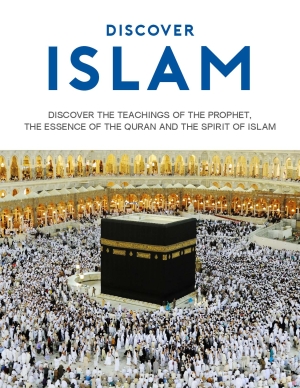Islam means submission. Submission is the essence of Islam. Submission means submission — or surrender — to God. When one discovers the existence of God and makes Him his sole concern, he surrenders before Him in the complete sense of the word. When a person Islamises his thought, dealings, his actions, he is a Muslim. This is the true spirit of Islam.
The verse in Chapter 41 reads: ‘Good and evil deeds are not equal. Do a good deed in return for a bad deed; then you will see that one who was once your enemy has become your dearest friend” (The Quran, 41:34). According to Islam, categorising people into enemies and friends is wrong. According to Islam, everyone is either a friend or a potential friend. An enemy is a potential friend. A Muslim must turn this potential into actuality through good deeds. This is the true spirit of Islam. An adverse reaction or negative thinking is un-Islamic. The word Islam itself has a connotation of peace. Because the root word of Islam is silm, which means peace. So, Islam is a religion of peace.
Severing relationships due to differences is not in accordance with the spirit of Islam. Mutual relationships should be maintained while continuing serious discussion of contentious issues. Not greeting the person with whom one has differences, or refusing to meet such a person, is highly improper. The Prophet himself faced many hostile cases of abuse, but he never protested. The prophet’s life is a model for Muslims. Thus violent protest in this manner is against the spirit of Islam.
Featured Articles
Featured Videos
FAQs
According to Islam, the spirit of religion is its real part and the form of religion is a relative part. Islam forbids stressing on the relative part, which is called extremism in Islam. Islam’s emphasis is on the spirit. So far as form is concerned, the way of tolerance will be adopted.
Islam attaches great importance to the life Hereafter. According to the teachings of Islam, man should make the success of the Hereafter his greatest concern. If a living awareness of this concept is produced in man, material differences, and controversies will be minimized and replaced by a non-materialistic or other-worldly outlook. The following verse of the Quran is significant in this regard: “And God calls to the Home of peace.” (10:25)
This means according to the creation plan, peace and harmony should prevail in human society. God Himself is peace. He intended this world to be peaceful, and only a peaceful world will be able to receive His blessings. A peaceful world is like Paradise on Earth. It is only in such a world that we can meet and establish contact with God Almighty, the Creator of man and the universe.
God-consciousness is the spirit of religion. Every form, activity, and teaching of Islam aims at inculcating God-consciousness in a believer, well-wishing towards fellow human beings. As a believer proceeds along the journey of life, he faces numerous kinds of situations, such as unpleasant behaviour from others, experiences of success and failure, moments of complaint, incidents of disputes and controversy and so on. When a believer has the heightened awareness of being accountable before God, he becomes God-conscious. He cannot afford to debase his character. He is extremely cautious in his speech and actions, which fosters in him the development of noble virtues. He becomes a very responsible person. For a believer, life’s experiences are an opportunity for spiritual development and purification of the soul.
Source: Spirit of Islam September 2020
If the true spirit of Islam is inculcated in a person, he becomes so compassionate to all living beings that even at the cost of his own comforts he extends a helping hand to others. Islamic belief softens the hearts of its believers. That is why when Islamic belief penetrates into people’s hearts they will of necessity become kind and compassionate to others. They will see everyone with eyes of ‘love and compassion,’ they will have this urge within them to serve others, and fulfill others’ needs.
As it is put in a hadith, “By God, he is not a Muslim who eats his fill, while his neighbour goes hungry.” (Al-Adab al-Mufrad, Hadith No. 112) This shows that a Muslim is one who is as concerned with others’ hunger and thirst as he is with his own, who is concerned not only with his own person but with the whole of humanity. According to another hadith, you should “extend greetings to people, feed them and earn your place in heaven.” (Musnad Ahmad, Hadith No. 23784)
This shows that according to Islam that person is worthy of heaven whose heart is impatient for others’ peace and good will, who is eager to share with everyone, whether it be food, clothes or medical help, etc. In short, one should share in people’s pain and suffering.
Islam is a religion of humanity. Islam considers serving others as a great act of worship. According to the teachings of Islam, it is only in serving people that we shall have a share in God’s mercy.
If even after adopting the beliefs of Islam, feelings of love and compassion do not well up in the heart of its adherent, he should rethink whether or not Islamic beliefs have truly found a place in his heart and mind, whether or not he is able to fully practice what he believes and whether or not he has succeeded in moulding himself entirely into the path of Islam.
Source: Simple Wisdom
Islam is an answer to the demands of nature. Islam as it is, is in fact a counterpart of human nature. This is why Islam has been called a religion of nature in the Quran and Hadith.
A man once came to the Prophet Muhammad and asked him what he should do in a certain matter. The Prophet replied, 'Consult your heart about it'. By the heart the Prophet meant common sense. That is, what one's common sense tells one would likewise be the demand of Islam. What does human nature desire more than anything? It desires, above all, peace and love. Every human being wants to live in peace and to receive love from the people around him. Peace and love are the religion of human nature as well as the demand of Islam. The Quran tells us, "God calls to the home of peace".
One of the teachings of Islam is that when two or more people meet, they must greet one another with the words, Assalamu Alaikum (Peace be upon you). Similarly, salat, or prayer, five times daily is the highest form of worship in Islam. At the close of each prayer all worshippers have to turn their faces to either side and utter the words Assalamu alaikum wa rahmatullah (May peace and God's blessings be upon you). This is like a pledge given to people: "O people you are safe from me. Your life, your property, your honour is secure with me."
This sums up the spirit of true religion, the goal of which is spiritual upliftment. It is the ultimate state of this spiritual upliftment which is referred to in the Quran as the 'soul at peace.' (89:27)
Thus a true and perfect man, from the religious point of view, is one who has reached that level of spiritual development where nothing but peace prevails. When a person has attained that peaceful state, others will receive from him nothing but peace. He may be likened to a flower which can send out only its fragrance to man, it being impossible for it to emit a foul smell. One who has found the true essence of religion no longer has the will or the capacity to do harm. He gives life not death, to others. He benefits others, doing no injury to anyone. In short, he lives among the people like flowers and not like thorns. He has nothing but love in his heart to bestow upon others.
A believer who worships God can feel himself becoming imbued with a special kind of peace and in turn he will live as a peaceful person in society. He will be a well-wisher to everyone and will consider all as his fellow beings.
Source: Spirit of Islam January 2018
According to a Hadith, the Prophet Muhammad observed: The moderate action is the best of all actions. Ali ibn Abi Talib, the Prophet's Companion, advised the people: ‘Adopt the middle path.’ (Tafsir Qurtubi, 2/154)
The middle path means the path of moderation. One instance of it can be seen in the following verse of the Quran: “Be neither miserly nor prodigal, for then you should neither be reproached nor be reduced to penury.” (17:29)
The same point, worded differently, has been made in another verse which characterizes “the true servants of the Merciful” are “those who, when they spend, are not extravagant and not niggardly, but maintain a just balance between those extremes.” (25:67)
According to these verses, moderate spending means neither lavishness nor miserliness but rather a balanced expenditure which will make life much easier to lead. In the same way, as regards optional fasts, prayers, etc., a middle path is desirable for man, as this enables him to maintain such a pattern of behaviour over a long period of time.
This middle path—the best path to follow—relates to all spheres of life. Man must shun extreme paths in all matters, for this accords with both the spirit of religion as well as with worldly success.
The middle path, to put it differently, is the non-emotional way. If a man loses his mental balance when confronted with any difficult situation in life, he goes to one extreme or the other. But if he keeps his feelings under control, he will be able to determine the proper course of action by giving it ample thought. A well-considered deed is always a moderate one; one who does not follow a moderate path will exceed all bounds both in friendship and in enmity. He will also be given to undue optimism in positive and pessimism in negative situations, and will unnecessarily regard some individuals as too bad and others as too good. However, it is the verdict of nature that in this world a moderate approach in life always succeeds, while taking the path of extremes inevitably leads to failure.
Source: Spirit of Islam December 2018





